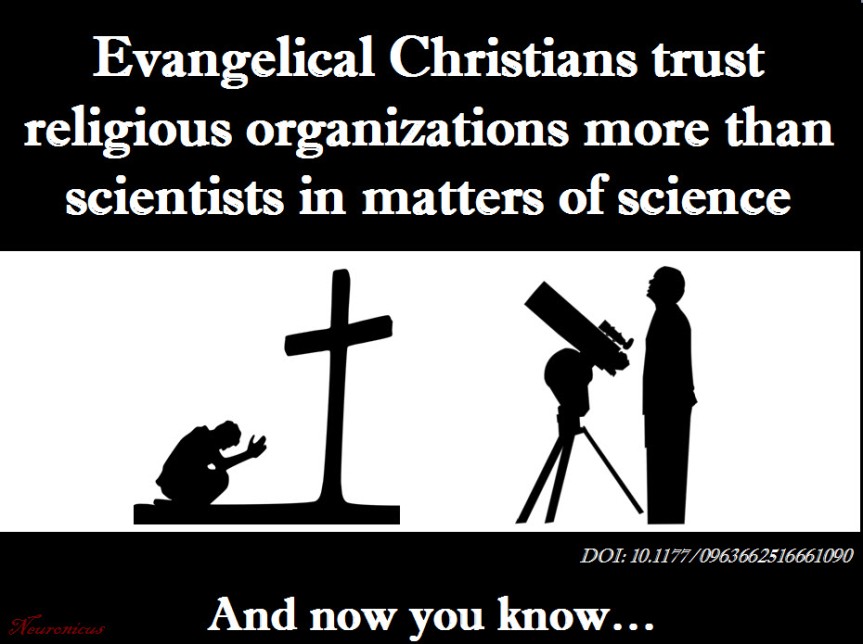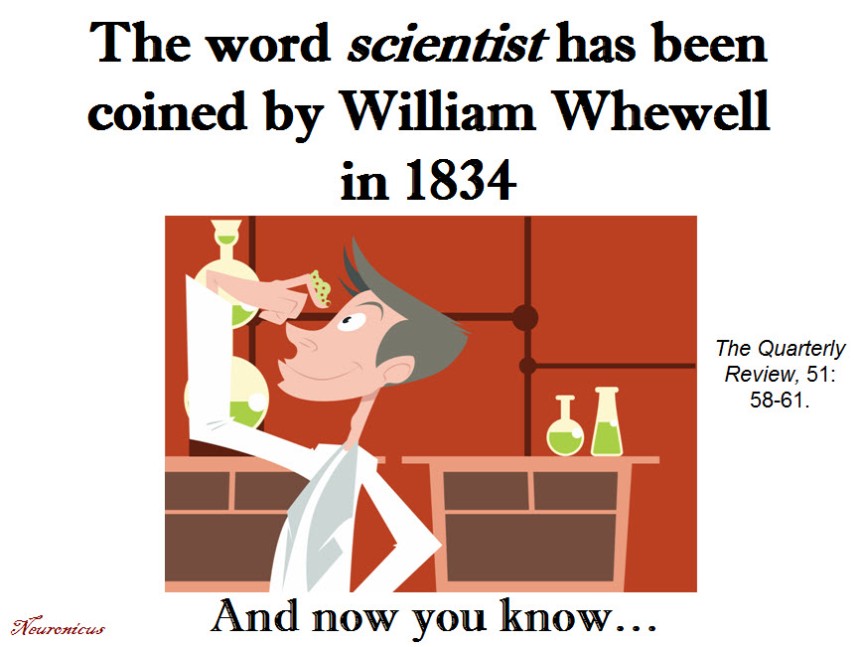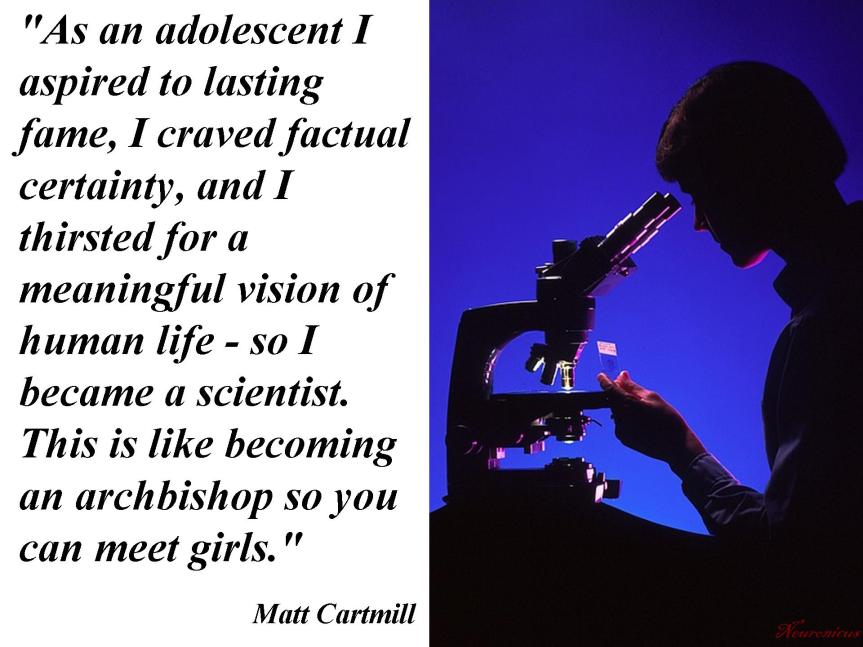If you want to find out how bleach works or what keeps the airplanes in the air or why is the rainbow the same sequence of colors or if it’s dangerous to let your kid play with snails would you ask a scientist or your local priest?
The answer is very straightforward for most of the people. Just that for a portion of the people the straightforwardness is viewed by the other portion as corkscrewedness. Or rather just plain dumb.
Cacciatore et al. (2016) asked about 5 years ago 2806 American adults how much they trust the information provided by religious organizations, university scientists, industry scientists, and science/technology museums. They also asked them about their age, gender, race, socioeconomic status, income as well as about Facebook use, religiosity, ideology, and attention to science-y content.
Almost 40% of the sample described themselves as Evangelical Christians, one of the largest religious group in USA. These people said they trust more their religious organizations then scientists (regardless of who employs these scientists) to tell the truth about the risks and benefits of technologies and their applications.
The data yielded more information, like the fact that younger, richer, liberal, and white people tended to trust scientists more then their counterparts. Finally, Republicans were more likely to report a religious affiliation than Democrats.
I would have thought that everybody would prefer to take advice about science from a scientist. Wow, what am I saying, I just realized what I typed… Of course people are taking health advice from homeopaths all the time, from politicians rather than environment scientists, from alternative medicine quacks than from doctors, from no-college educated than geneticists. From this perspective then, the results of this study are not surprising, just very very sad… I just didn’t think that the gullible people can also be grouped by political affiliations. I though the affliction is attacking both sides of an ideological isle in a democratic manner.
Of course, this is a survey study, therefore a lot more work is needed to properly generalize these results, from expanding the survey sections (beyond the meager 1 or 2 questions per section) to validation and replication. Possibly, even addressing different aspects of science because, for instance, climate change is a much more touchy subject than, say, apoptosis. And replace or get rid of the “Scientists know best what is good for the public” item; seriously, I don’t know any scientist, including me, who would answer yes to that question. Nevertheless, the trend is, like I said, sad.

Reference: Cacciatore MA, Browning N, Scheufele DA, Brossard D, Xenos MA, & Corley EA. (Epub ahead of print 25 Jul 2016). Opposing ends of the spectrum: Exploring trust in scientific and religious authorities. Public Understanding of Science. PMID: 27458117, DOI: 10.1177/0963662516661090. ARTICLE | NPR cover
By Neuronicus, 7 December 2016



